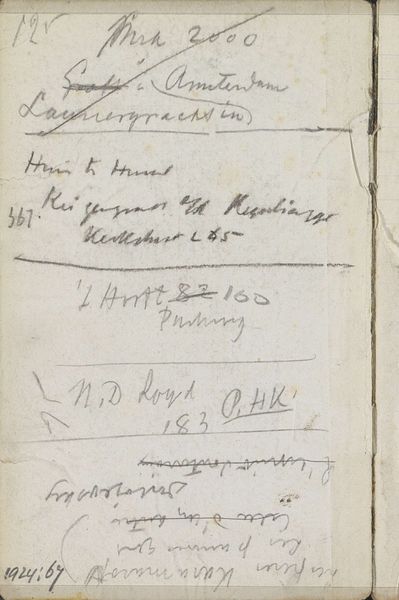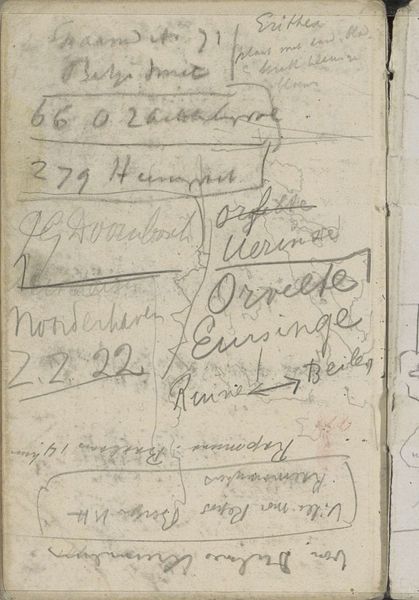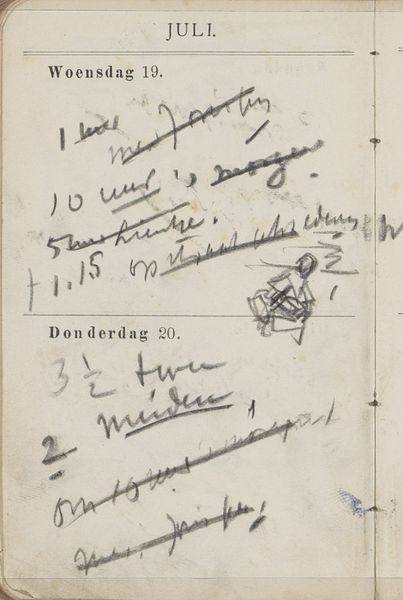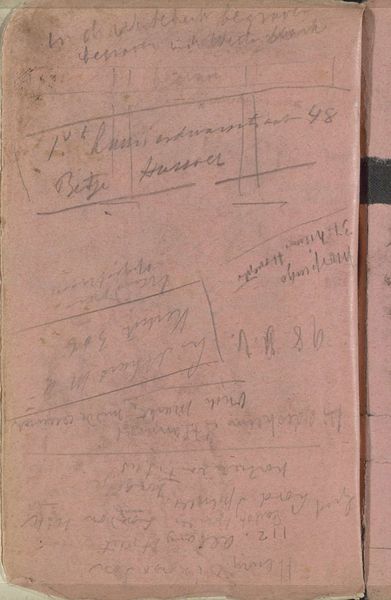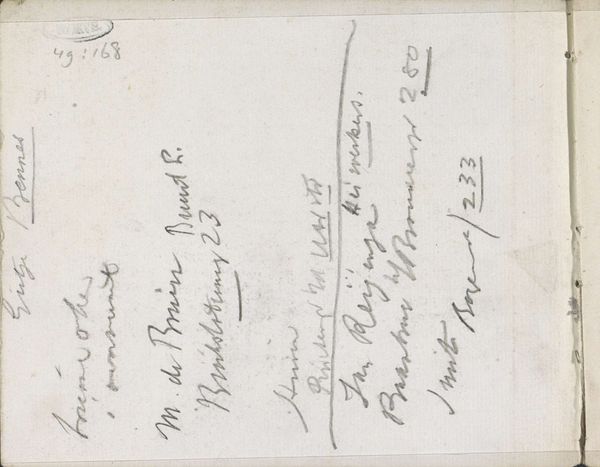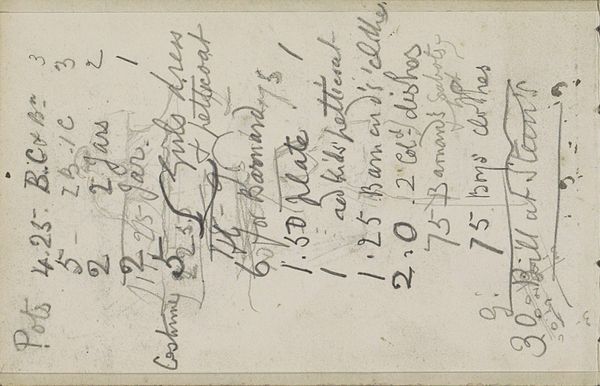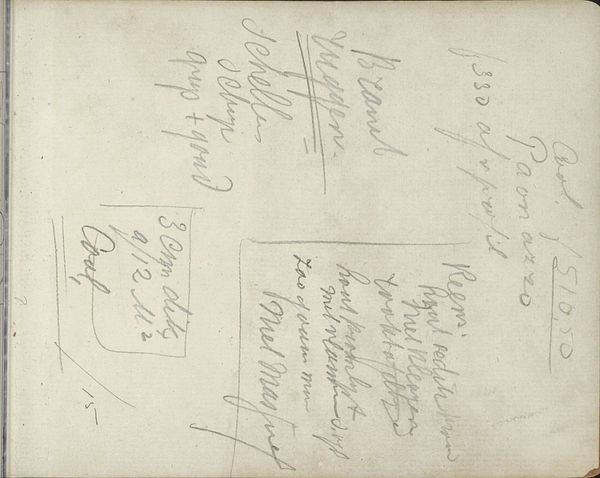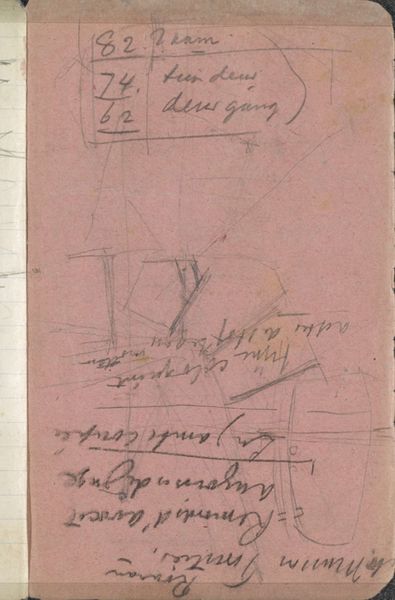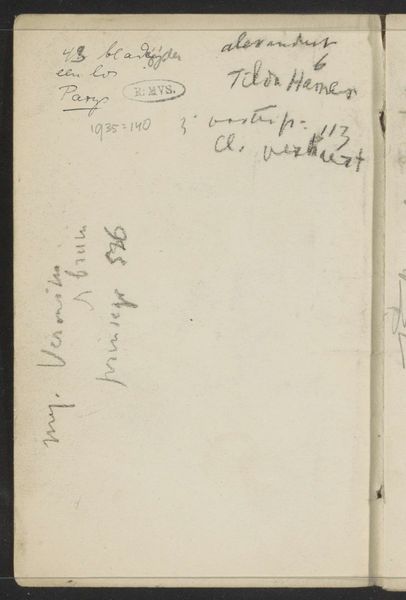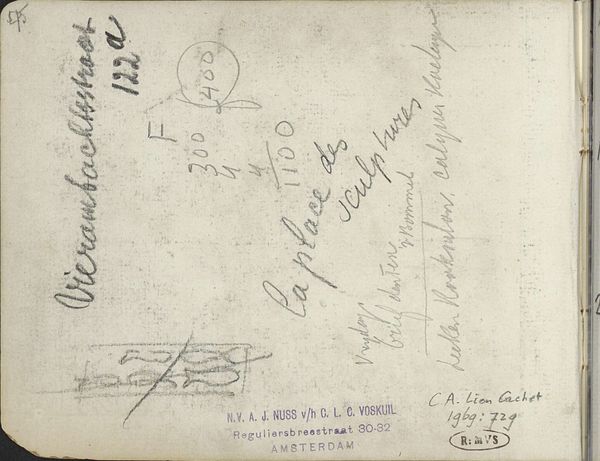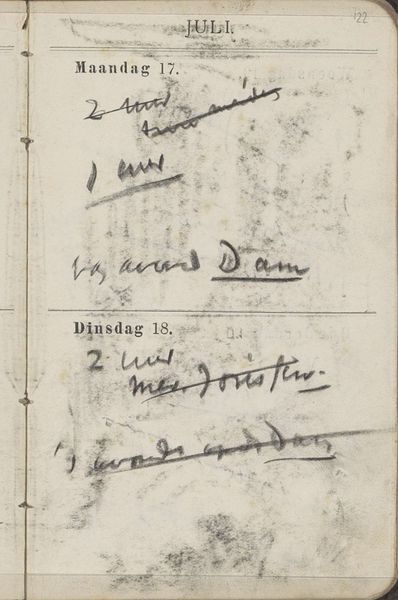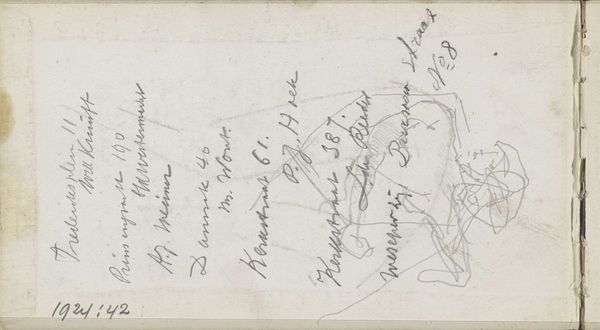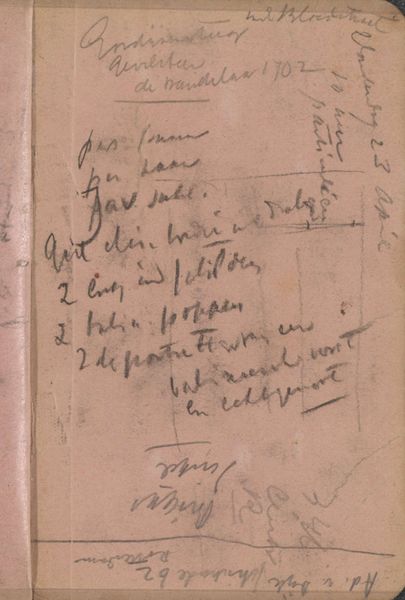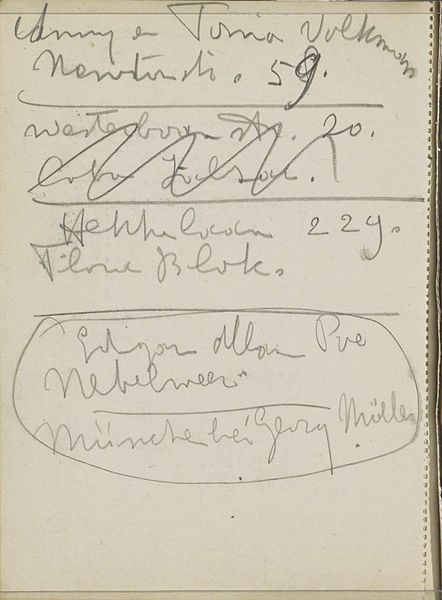
drawing, mixed-media, paper, pencil
#
portrait
#
drawing
#
mixed-media
#
hand written
#
hand-lettering
#
dutch-golden-age
#
hand drawn type
#
landscape
#
hand lettering
#
paper
#
personal sketchbook
#
hand-written
#
hand-drawn typeface
#
fading type
#
pencil
#
sketchbook drawing
#
sketchbook art
Dimensions: height 104 mm, width 62 mm
Copyright: Rijks Museum: Open Domain
This is one of George Hendrik Breitner’s study and annotations, dating from around the turn of the 20th century. It's made with graphite on paper. The fragile paper has been inscribed with notations, almost like an aide-mémoire, revealing Breitner's thought processes. You can see faint impressions, the textured surface of the paper, and smudges from the artist's hand. The graphite lines have a provisional quality, reflecting the immediate nature of the annotations. The materiality speaks to the value of ephemera, where the process of creating a work becomes just as significant as the end result. In Breitner's time, the industrial revolution was transforming society, impacting labor practices and challenging traditional artistic hierarchies. By choosing humble materials like paper and graphite, Breitner democratizes the artistic process. This brings the means of artistic production closer to everyday life. It elevates what might otherwise be considered disposable. Ultimately, this piece reminds us that the story of art is as much about the materials, the making, and the context, as it is about any final aesthetic flourish.
Comments
No comments
Be the first to comment and join the conversation on the ultimate creative platform.
